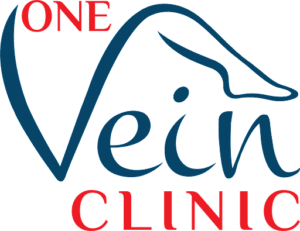Good vein health ensures proper blood circulation and prevents complications like deep vein thrombosis. You can safeguard yourself against serious issues and promote optimal vascular health by caring for your veins. Read on to learn more about the dangers of DVT and how to lower your risk.
What Is Deep Vein Thrombosis?
Deep vein thrombosis (DVT) is a blood clot that forms in one or more deep veins, usually in the legs. This can lead to serious complications such as pulmonary embolism (PE), a condition where the blood clot breaks free and travels to the lungs, blocking blood flow and putting your life at risk. Because deep vein thrombosis can strike anyone, knowing the warning signs and risk factors is crucial. At One Vein Clinic in St. Augustine, Florida, vein specialist Dr. Fawzi Farha, MD, and our dynamic team want to arm patients with as much knowledge as possible to keep their veins healthy. DVT is not only a serious health threat, but it can also cause long-term damage to your veins, resulting in a condition known as post-thrombotic syndrome (PTS).
Warning Signs to Watch For
While some cases of DVT strike without symptoms, there are common warning signs to look out for. One of the most telltale symptoms of DVT is sudden or gradual swelling in the affected limb, usually in the leg. DVT can also cause persistent, cramp-like pain or tenderness in the affected area, often accompanied by warmth and redness. Additionally, DVT can also cause a bluish or reddish discoloration, which is due to reduced blood flow and oxygen levels.
Risk Factors and Prevention
The following are the top risk factors for DVT:
Prolonged Immobility
Staying in one position for too long without moving is a major risk factor for DVT. When you’re immobile, blood flow slows down, increasing the risk of clot formation. Make a conscious effort to move around regularly, especially during long flights or car rides. Consider using compression stockings to promote blood flow in your legs.
Obesity
Obesity puts excess pressure on the veins in your legs, raising the risk of venous problems like DVT. The added pressure makes it harder for blood to circulate properly, setting the stage for stagnant blood flow to form a clot.
Hormone Therapy
Hormonal factors, such as hormone therapy or birth control pills, can increase the risk of blood clots. Discuss alternative options with your health care provider if you’re at high risk for DVT.
Smoking
Smoking damages the lining of your blood vessels and makes your blood more prone to clotting, so it’s important to kick the habit to reduce your risk. Major surgeries or injuries can temporarily increase your risk of DVT as well.
Importance of Early Detection
Catching DVT early can significantly reduce the risk of severe complications. Dr. Farha will work to provide an accurate diagnosis, which may involve a physical examination and specialized tests, such as ultrasounds or blood tests. Once diagnosed, Dr. Farha will determine the most appropriate treatment plan, which may include anticoagulant medications (blood thinners) to prevent clot growth and reduce the risk of PE. In some cases, treatments like a vena cava filter placement may be necessary. This special filter traps the blood clot, which prevents PE.
Lifestyle Changes Can Prevent DVT
In addition to being aware of the risk factors and warning signs of DVT, adopting vein-friendly lifestyle changes can further help you minimize the risk of developing this condition. Regular exercise promotes good blood circulation and helps to maintain a healthy weight. It doesn’t take much exercise to keep your heart and veins healthy. Just 30 minutes of moderate exercise, such as walking, swimming, or cycling, most days of the week is incredibly beneficial. Standing and stretching your legs frequently throughout your workday improves blood flow for office warriors. Even just moving your legs around under your desk is helpful. Combatting the dangers of DVT simply takes conscious effort.
Prioritize Vein Health
DVT might seem like a distant threat, but it can strike at any time. Knowing what to look out for and how to boost healthy blood flow can help you stay ahead of the dangers of DVT.




